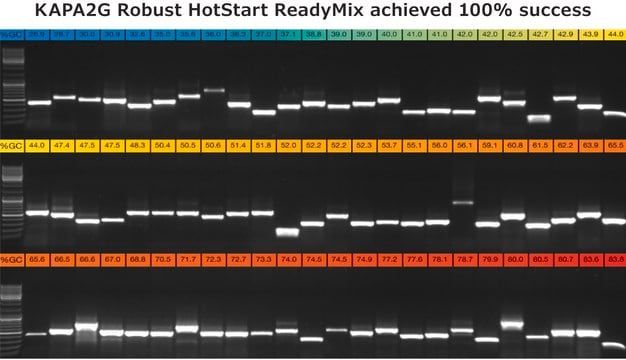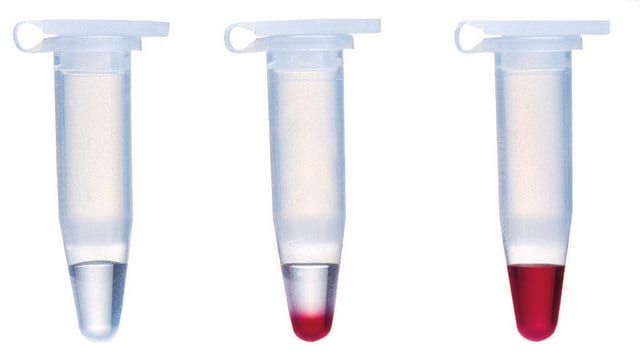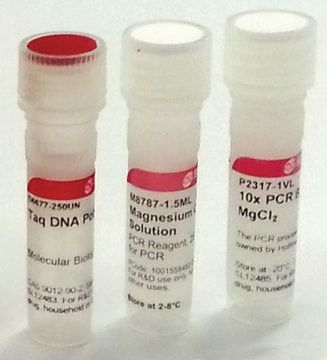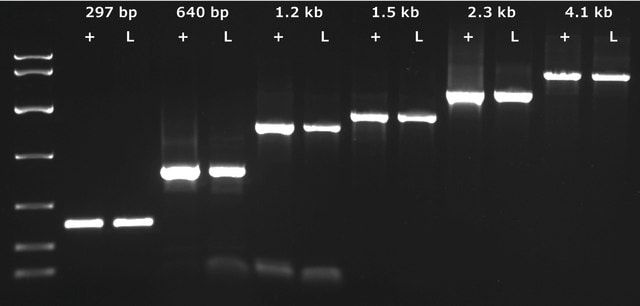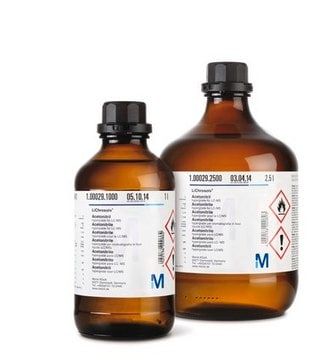3GPHSKB
KAPA3G Plant PCR Kit
Manufacturer: Sigma Aldrich
Synonym(S): PCR, Plant PCR
Select a Size
| Pack Size | SKU | Availability | Price |
|---|---|---|---|
| 1 EACH | 3GPHSKB-1-EACH | In Stock | ₹ 24,897.30 |
| 1 EACH | 3GPHSKB-1-EACH | In Stock | ₹ 33,766.20 |
3GPHSKB - 1 EACH
In Stock
Quantity
1
Base Price: ₹ 24,897.30
GST (18%): ₹ 4,481.514
Total Price: ₹ 29,378.814
usage
sufficient for 250 reactions50 μL sufficient for 250 reactions (KK7251) sufficient for 500 reactions50 μL sufficient for 500 reactions (KK7252)
Quality Level
100
shelf life
≤12 mo.
feature
Difficult Templates/Specialty Enzymes PCRdNTPs included: nohotstart: no
manufacturer/tradename
Roche
technique(s)
PCR: suitable
input
crude DNA
storage temp.
−20°C
Related Products
Description
- General description: KAPA3G Plant PCR Kits are designed for PCR of plant-derived DNA, using either purified DNA or DNA prepared by crude extraction methods (crude sample PCR). In addition, the KAPA3G Plant PCR Kit can be used to amplify DNA from plant material added directly to the PCR (direct PCR). The KAPA3G Plant PCR Kit contains KAPA3G DNA Polymerase, a novel, third-generation (3G) enzyme which was engineered via a process of directed evolution for improved tolerance to common plant-derived PCR inhibitors such as polyphenolics and polysaccharides.The KAPA3G Plant PCR Kits are optimized for fast and efficient amplification of plant DNA from crude samples, DNA-containing carry-over inhibitors from crude extraction methods, and purified DNA.KAPA3G Plant DNA Polymerase is a blend of the engineered A-family KAPA3G DNA Polymerase and a modified B-family DNA Polymerase. The enzyme blend is combined with proprietary antibodies to inactivate the enzymes prior to the first denaturation step. The fidelity of the KAPA3G Plant DNA Polymerase is 4-10 times higher than that of wild-type Taq.
- Application: KAPA3G Plant PCR Kit has been used for: Amplification of fragments up to 5 kb in size from purified plant DNA, extracted with commercial kits or cetyl trimethyl ammonium bromide (CTAB)-based methodsDirect polymerase chain reaction (PCR) from leaf discs, seed samples, and other plant tissue types[1] PCR from crude plant DNA extracts, prepared from leaf and/or seed material[2]amplification of 16SrRNA[3]an ultra-rapid real-time reverse transcriptase (RT)-PCR assay[4]
- Features and Benefits: Key features of the KAPA3G Plant PCR Kit include:Fast PCR direct from plant tissues such as leaf discs, seeds and crude plant extracts.Streamlined workflows for transgenic screening.Improved PCR success rates and reproducibility.Efficient amplification of long and difficult targets from all sample types.Amplify long targets from crude samples and purified DNA:Amplify fragments up to 5 kb from purified DNA and crude samplesHigh yield and specificity with purified DNA and crude samplesPerform direct PCR from a variety of plant species and tissue types:Direct PCR with leaf disc or seed as templateNo need for time-consuming DNA extractions Streamline workflows and improve turnaround times:Perform PCR in half the time compared with wild-type enzymesEliminate the need for time-consuming DNA extractions Improve success rates with novel crude sample plant PCR workflow:Use extraction buffer to prepare crude extracts for plant PCR in just 5 minutesHigh success rates with even the most challenging sample typesQuick Notes:KAPA3G Plant DNA Polymerase is tolerant to plant-derived PCR inhibitors, and can amplify frompurified DNA, crude extracts, and plant material.Optimize reaction conditions using purified DNA before attempting direct or crude sample PCR.For direct PCR, use a sampling tool to control the amount of plant material added to the reaction. The use of excessive amounts of crude plant material in PCR is a major cause of direct PCR reaction failure.For crude sample PCR, prepare a crude DNA extract using a small amount of plant material in Extraction Buffer (Refer to Section 3: Crude sample PCR), and use 1 μL per 50 μL reaction.KAPA Plant PCR Buffer contains MgCl2 (1.5 mM at 1X) and dNTPs (0.2 mM each at 1X). Additional MgCl2(25 mM) is supplied separately for optimization.
- Quality: Each batch of KAPA3G Plant DNA Polymerase is confirmed to contain <2% contaminating protein (Agilent Protein 230 Assay). KAPA3G Plant PCR Kits are subjected to stringent quality control tests, are free of contaminating exo- and endonuclease activity, and meet strict requirements with respect to DNA contamination levels.
- Preparation Note: Always ensure that the product has been fully thawed and mixed before use. Reagents may be stored at 4°C for short-term use (up to 1 month). Return to -20°C for long-term storage.
- Other Notes: For Research Use Only. Not for use in diagnostic procedures.
SAFETY INFORMATION
WGK
WGK 1
Flash Point(F)
does not flash
Flash Point(C)
does not flash
Compare Similar Items
Show Difference
usage: sufficient for 250 reactions50 μL sufficient for 250 reactions (KK7251) sufficient for 500 reactions50 μL sufficient for 500 reactions (KK7252)
Quality Level: 100
shelf life: ≤12 mo.
feature: Difficult Templates/Specialty Enzymes PCRdNTPs included: nohotstart: no
manufacturer/tradename: Roche
technique(s): PCR: suitable
input: crude DNA
storage temp.: −20°C
usage:
sufficient for 250 reactions50 μL sufficient for 250 reactions (KK7251) sufficient for 500 reactions50 μL sufficient for 500 reactions (KK7252)
Quality Level:
100
shelf life:
≤12 mo.
feature:
Difficult Templates/Specialty Enzymes PCRdNTPs included: nohotstart: no
manufacturer/tradename:
Roche
technique(s):
PCR: suitable
input:
crude DNA
storage temp.:
−20°C
